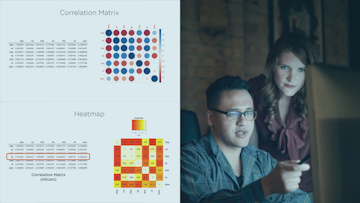
Data Science and Machine Learning are rapidly growing fields that use scientific methods and processes to extract useful knowledge and insights from data. In this course, Finding Relationships in Data with R you will learn foundational knowledge of solving real world data science problems. First, you will learn the basics of discovering and visualizing relationships within data. Next, you will learn how correlation values and correlation matrices can be used to analyze relationships within data. Finally, you will explore how to understand and implement correlation matrices and dataframes using heatmaps and pairs plots. When...
Read more
Good to know
Save this course
Activities
Career center
Data Visualization Specialist
Data Scientist
Machine Learning Engineer
Statistician
Market Researcher
Business Analyst
Data Analyst
Financial Analyst
Operations Research Analyst
Actuary
Epidemiologist
Biostatistician
Software Engineer
Computer Scientist
Data Engineer
Reading list
Share
Similar courses
OpenCourser helps millions of learners each year. People visit us to learn workspace skills, ace their exams, and nurture their curiosity.
Our extensive catalog contains over 50,000 courses and twice as many books. Browse by search, by topic, or even by career interests. We'll match you to the right resources quickly.
Find this site helpful? Tell a friend about us.
We're supported by our community of learners. When you purchase or subscribe to courses and programs or purchase books, we may earn a commission from our partners.
Your purchases help us maintain our catalog and keep our servers humming without ads.
Thank you for supporting OpenCourser.


